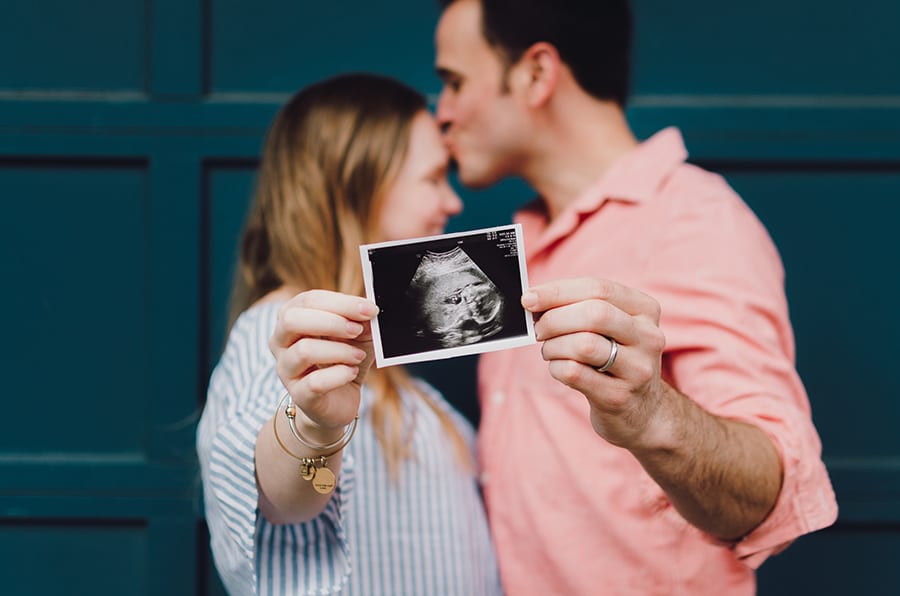
Pregnancy is an amazing and wonderful experience for most women. For those with celiac disease, that can and should be no different. The two most important issues to consider when addressing celiac disease and pregnancy are 1) when was the celiac disease diagnosed? Before, during or after pregnancy? 2) Was the patient on the gluten-free diet during their pregnancy?
Depending on the answers to these two questions, the outcomes can be very different in relation to:
Fertility encompasses not only one’s ability to get pregnant but also the ability to maintain a pregnancy to the point of delivering a viable, healthy baby. When discussing fertility and celiac disease, the difficult subject of miscarriage and pregnancy loss is as much a part of the story as is getting pregnant.
It appears from numerous studies on women suffering from unexplained infertility that the incidence of undiagnosed celiac disease in this population is somewhere between 1-3 percent. Some studies have even found the prevalence to be as high as 8 percent. Because of this, some clinicians advocate testing all women suffering from unexplained infertility for celiac disease. It is important to remember that many women who are diagnosed with celiac disease in the process of an infertility evaluation have no symptoms other than infertility itself. This may make it less likely that a practitioner would consider celiac disease. Universally testing all infertility patients for celiac disease would alleviate this issue.
To date, most studies addressing infertility and celiac disease are on women, but there are also several that have look at infertility in men with celiac disease. These studies have found that undiagnosed celiac disease in men also lowers fertility rates. This fact needs to be considered when working with infertile couples. (Learn more about infertility in men with celiac disease.)
Celiac disease has also been found in several studies to be a frequent cause of miscarriage. The reasons for this are dependent on each patient but are the same reasons patients have difficulty getting pregnant.
Pregnancy complications in undiagnosed celiac disease have been linked in studies to vitamin and mineral deficiencies that can occur when the absorbing lining of the intestine is damaged through exposure to gluten. Additionally, tissue transglutaminase (tTG) antibodies produced in response to celiac disease are thought to have an impact on implantation and survival of a pregnancy.
So how long after being diagnosed do you have to wait before trying to get pregnant? The answer to that question is not well studied but most practitioners would recommend waiting 6 months to 2 years depending on the women’s age and pre-diagnosis health status. It is of utmost importance that women with celiac disease be on a strict gluten-free diet, are healthy and in good nutritional status prior to attempting to get pregnant. This would optimize their chances for normal pregnancy and a healthy baby. In addition to the diet, nutritional lab tests may be ordered on patients with celiac disease who are trying to get pregnant. Tests vary from patient to patient but may include iron and thyroid studies, folate and B-12 levels, vitamin D, Zinc and essential fatty acids. These would be in addition to the standard prenatal lab tests.
Key Points on Fertility and Celiac Disease:
Once you get pregnant and maintain the pregnancy, what are the important factors relative to celiac disease?
The most important thing you can do is maintain a strict gluten-free diet. This will keep you and your intestines healthy and provide all the nutrients and calories you and your baby needs. (Learn more about nutrition during pregnancy with celiac disease.)

Once you have delivered your baby, are there any issues of importance to women with celiac disease? The most important issue still, is the need to maintain a strict gluten-free diet.
Women with celiac disease who fail to follow a gluten-free diet have been shown to breastfeed for a shorter period of time. In addition, one study showed the breastfeeding your infant, particularly during the time of gluten introduction, may significantly decrease their chance of acquiring celiac disease. However, the patients in this study were not followed for a prolonged period of time so it is not known if breastfeeding permanently decreases the risk of developing celiac disease or simply delays it.
Exactly when is the optimal time to introduce gluten to the child of a mother with celiac disease.
Read the latest guidelines for infants at risk of celiac disease here.
The latest research on celiac disease, pregnancy and infants:
Content on this page comes from an article written in 2009 by Amy Burkhart, MD, RD for Beyond Celiac (then The National Foundation for Celiac Awareness) along with updated information added by the Beyond Celiac team in 2019.
Opt-in to stay up-to-date on the latest news.
Yes, I want to advance research No, I'd prefer not to